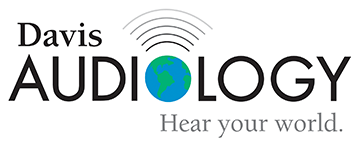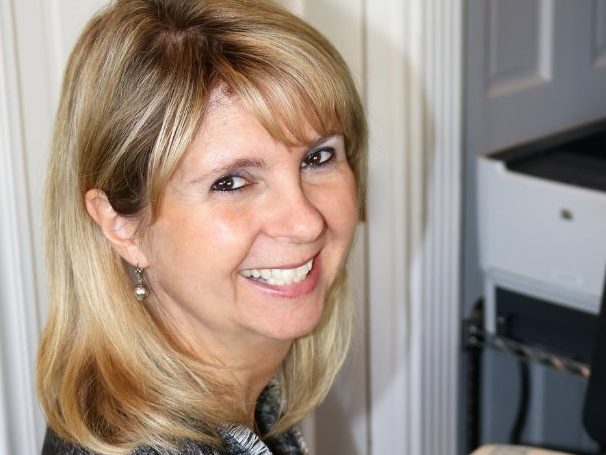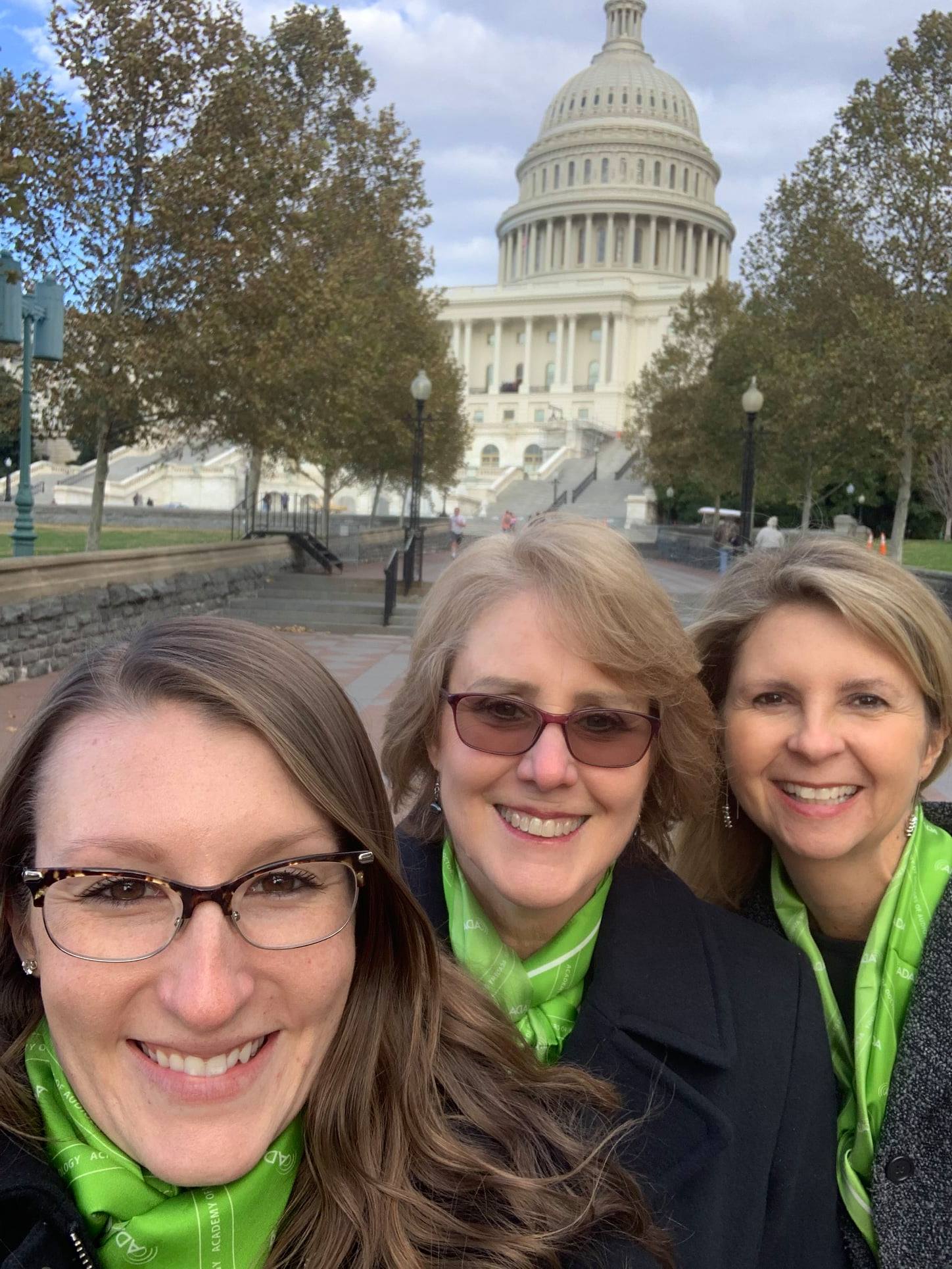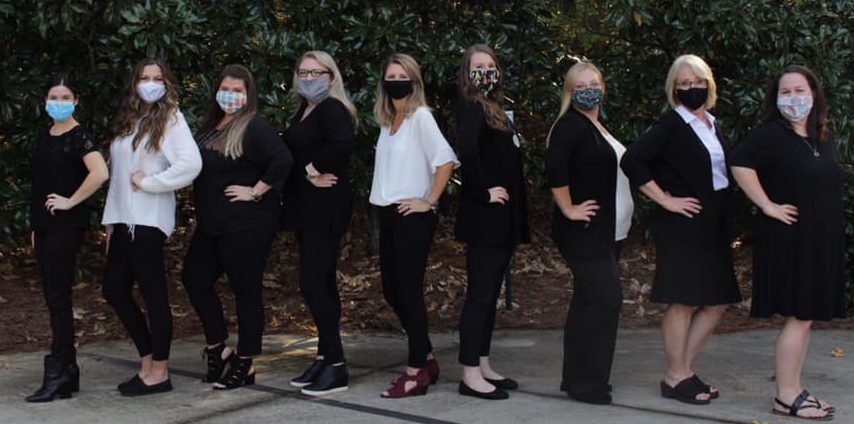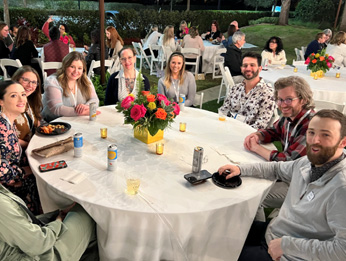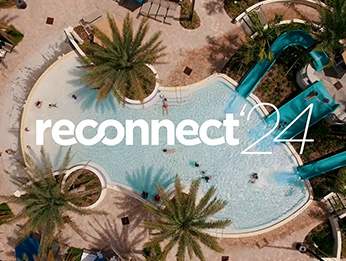Creating a brighter future for the audiology profession
Member Spotlight | Davis Audiology
Dr. Kristin Davis, Au.D. runs three successful practices throughout South Carolina and simultaneously works to advance the audiology profession and expand access to hearing healthcare. Over the years, she’s participated in several hearing mission trips, donated an Induction Loop System to a local theatre to transmit stage audio directly to audience members’ hearing aids, helped send local veterans to Washington, D.C. to see the memorials built in their honor, and even started her own not-for-profit, the Carolina Hearing Foundation. As a board member and current President-Elect of the Academy of Doctors of Audiology (ADA), Kristin helps lobby for important legislation affecting the industry, including the Medicare Audiologist Access and Services Act (MAASA) which will, among many other things, reclassify audiologists as practitioners and allow them to provide services through telehealth permanently. In 2017, she was even co-awarded the ADA’s Craig W. Johnson Audiology Advocate Award for her “contributions to the profession of audiology through federal and/or state advocacy.” We talked with Kristin about MAASA, Managed Care, OTC, and what providers should do to stay competitive while upholding the same high level of patient care.
“We need to engage on the business level the same way and with the same amount of passion that we engage with and advocate for our patients”
Dr. Kristin Davis, Au.D.
Q&A with Dr. Kristin Davis, Au.D., Owner & Director of Davis Audiology:
1You’re currently on track to achieve significant year-over-year growth for your third straight year. Tell us about the biggest adjustments you made to your business last year and the impact it’s had on your practice.
The biggest adjustment I made last year was something I actually had planned to do but was accelerated by COVID-19 which was pulling myself completely out of patient care to focus more on running, managing, and growing the business. That has been an amazing experience for me. I have the time to finally focus on all the little ideas I’ve had over the years. They’ve worked well and I’m looking forward to implementing even more now that COVID restrictions are easing up some. I’m also fortunate for the area of the country that we’re in. There were about three weeks where it was just me and another audiology assistant doing a lot of on-the-go repairs, but we never completely shut down. After that, we started doing curbside and staggered in-person appointments. So that really helped us not lose momentum.
2You’ve also achieved this success without participating in Managed Care programs. Tell us about that decision and your thoughts on the subject.
I see Managed Care as just another disruptor for audiology—it’s just another thing we need to adjust to. But that’s what business and life are all about so, I’m not anxiety-ridden about it. The best way to deal with it is to keep an open mind. What I’ve decided to do is add more support staff, so that we can triage those patients and make sure everybody is getting the great patient care that Davis Audiology is known for, and in the most efficient way possible.
3Managing nine employees across three locations is not easy. How do you do it?
I’m blessed to have an amazing team. Most of the time they make it easy. When challenges do come up, I find it’s best to meet with them one-on-one. We do group meetings throughout the month, either virtually or in person but I also make sure I still take the time to meet with each person individually. I do performance reviews once a year, which can be challenging, but I love touching base with my team regularly. It’s just more casual, more open-ended. I give them feedback but also ask them for ideas on how we can make certain things better or what’s working and what’s not working. It’s really a two-way dialogue and I find that works well for me. They appreciate that I want to hear their ideas and are less defensive about any kind of constructive criticism I need to share with them.
4What advice would you give to other practice owners who want to become more effective managers and leaders?
Advice I would give to other managers—and something I’m still even trying to take my own advice on—is to be more present. Don’t rely on all your employees being in the same office. Do site visits more frequently.
5Switching subjects, what’s it like being the ADA’s President-Elect, and what made you want to take on the role?
It’s a little bit overwhelming at times [laughs]. But it’s very exciting. The way it works is that you’re on the board for a year before becoming president and you get mentored so that you’re not just thrown out there. I feel like I’m getting well-prepared and I’m very excited to actually be the president next year. The reason I wanted to do it is that I’m so passionate about our profession and have been for years. I feel like more audiologists need to have their minds and eyes open to the marriage of the business and the clinical sides of audiology. We need to engage on the business level the same way and with the same amount of passion that we engage with and advocate for our patients. That’s what the ADA is all about. Consult is great at talking about this, too. You can’t help people if you’re not in business and getting them in the door.
6Over the years, you’ve helped lobby for several important pieces of legislation. Is there one bill in particular that you’re most proud of?
I’m most proud of the one we’re currently working on—the Medicare Audiologist Access and Services Act (MAASA). It’s supported by ASHA, AAA, ADA, and hopefully, many more in the industry because it will make a huge difference. It will provide direct access for audiologists without having to have a physician order. It will also reclassify us for Medicare, allowing us to bill for and get reimbursed for our services. We’ve been working on it since 2011 or 2012, so I’ll be extremely ecstatic when it finally gets passed, which we’re hopeful will be in the next 18 months.
7In addition to your political advocacy, you’re involved in numerous charitable causes. Tell us about one that’s been especially meaningful to you and why.
The most meaningful is establishing the Carolina Hearing Foundation, which is still in its infancy. We’ve just started being able to deliver services here in Greenville, South Carolina, working with the Greenville Free Medical Clinic. All of the mission trips and organizations I’ve worked with have been wonderful experiences, but this is kind of my baby. It’s also really special to be able to help people here at home who need it.
8What are three key changes you’d like to see in the coming years to increase awareness of and access to quality hearing healthcare?
First, having MASSA pass so that audiologists can practice more autonomously. Second, having more audiologists engage in community service or mission work, but here at home because there are so many underserved populations in rural areas of the U.S. The third is research! I think that there’s a lot of untapped opportunities for the industry and audiologists to work together to show that we’re helping patients and prove those outcomes to the media, to legislators, and to the public. Plenty of people are going to get help from over-the-counter hearing aids, but it’s important they understand that the best outcomes for patients—especially those with moderate to severe hearing loss—happen when there’s an audiologist guiding their journey.

